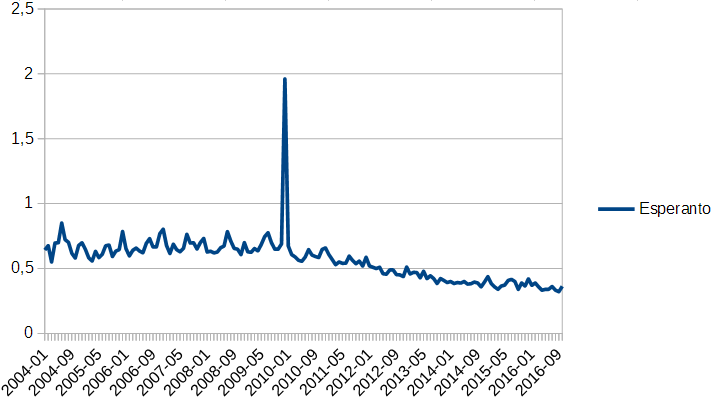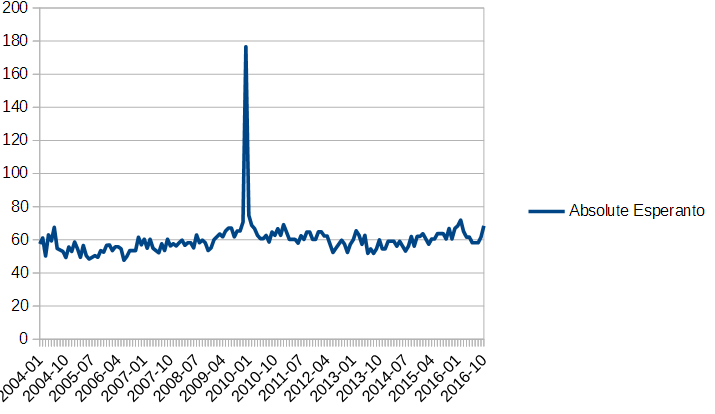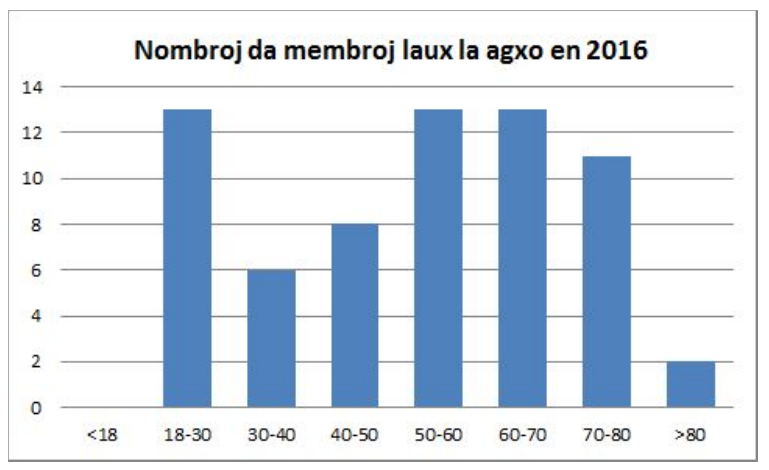I have been, for the last few months, ambivalent about learning Esperanto. Actually, I have yet to learn much of anything because I cannot gauge whether it would be reasonable to take time to do so rather than focus on other languages I have been dedicating my free-time to. I admire Esperanto for its emphasis on international cooperation, as well as its supposed relative ease to learn it. Being interested in language, also being a high school student who wants to be an ESL teacher, Esperanto does have its appeal for me. However, amongst all of its criticism, what stands out is this question:
Will Esperanto survive in the future? It has lasted surprisingly long, now that I have seen its history, but is the community of speakers growing sufficiently amongst younger people so that we can safely say that it will be active in 30 years? Is there a way to see statistics for this? If a language does not grow with younger people, it will die as soon as the older people do. Though I am in high school, I also already love languages and am politically pink in general and so fit a sort of stereotypical image of an Esperanto learner, so I do not consider my presence really indicative of any trends.
I see the course on Duolingo is at or near half a million learners, but how many of them are completing the course? What is the mean or median age of these people? Why are these people learning it? I know these aren't exactly solid questions, but they are things I cannot come up with answers for, so I figured someone with experience on here may have concrete answers for sharing. Thank you!


